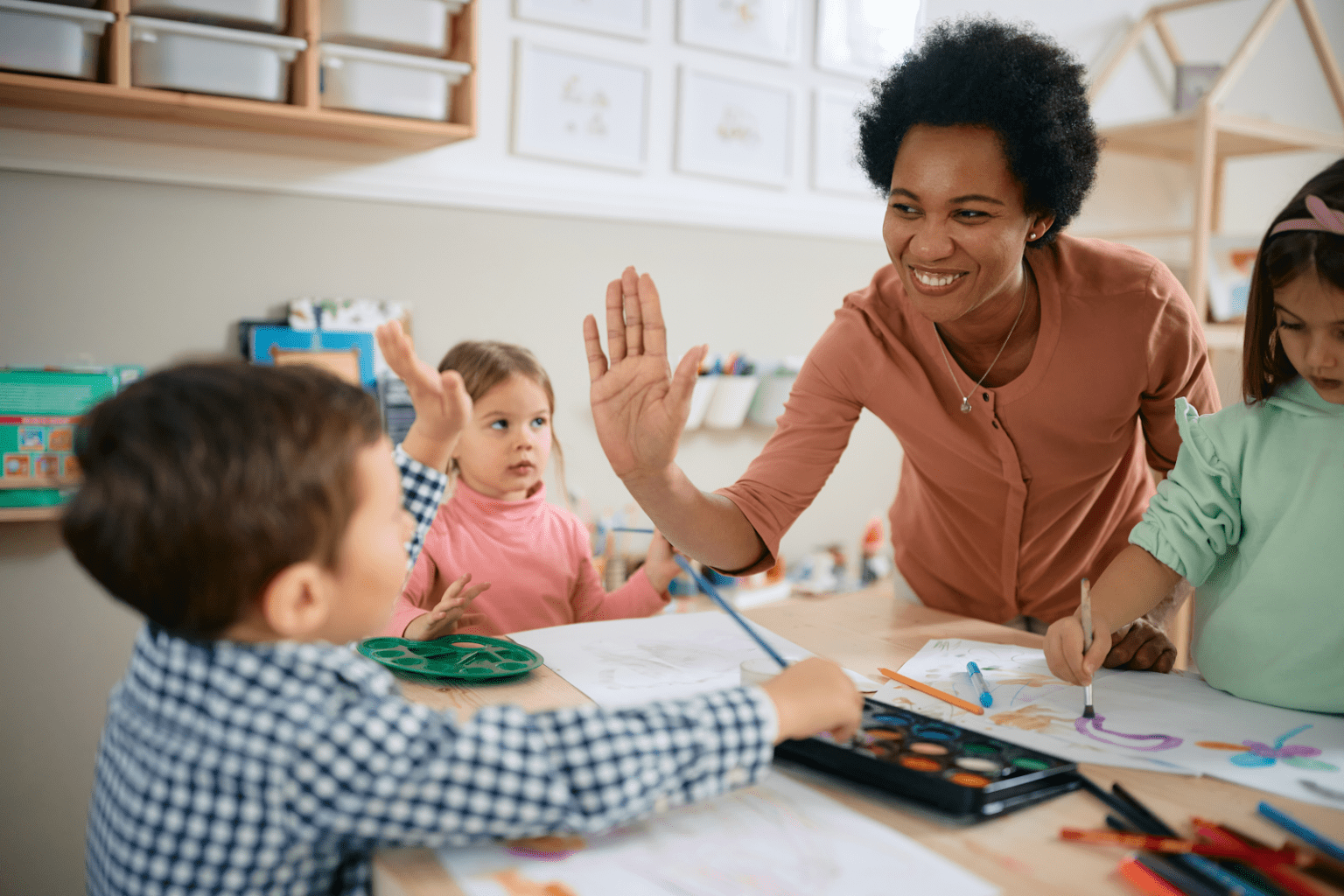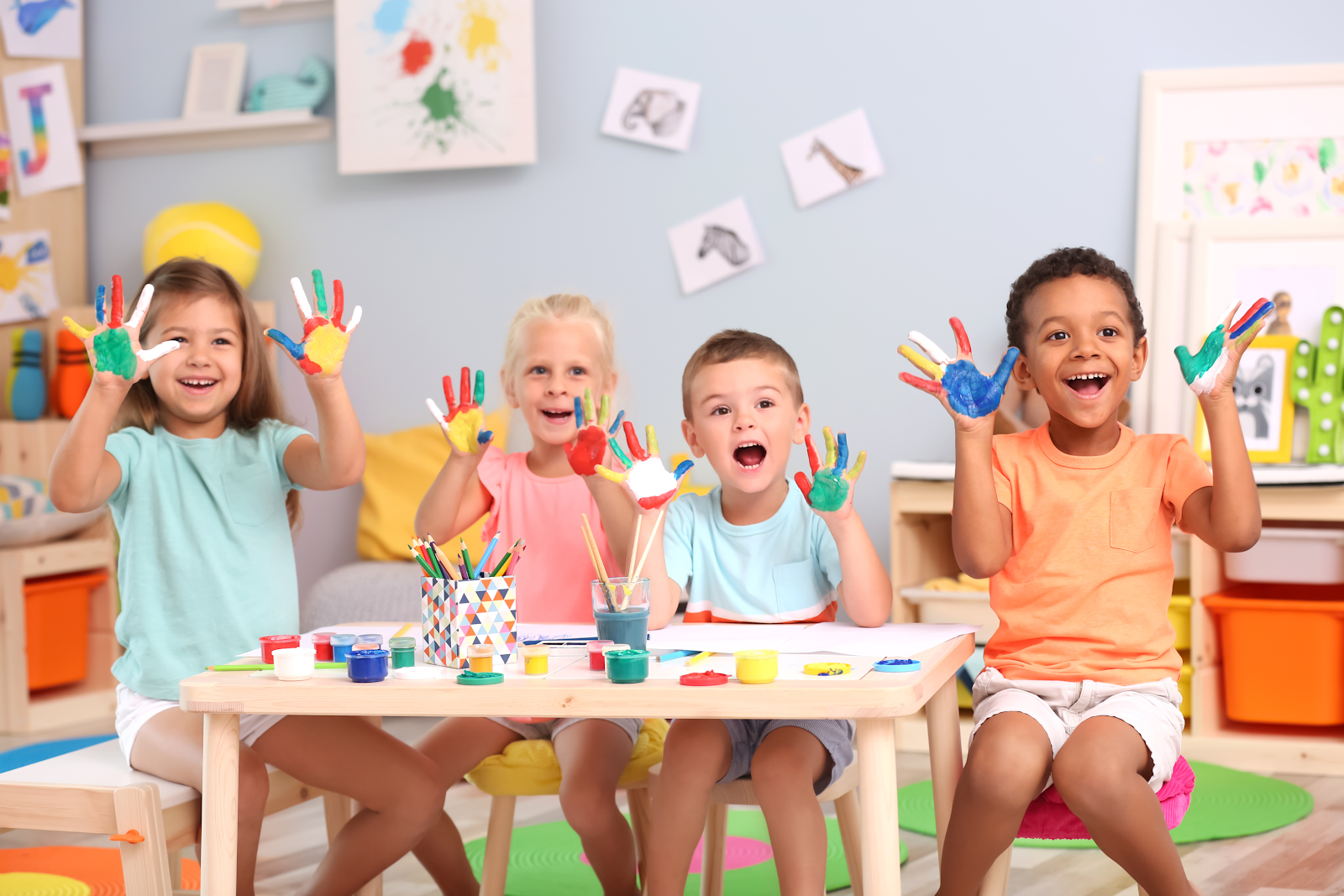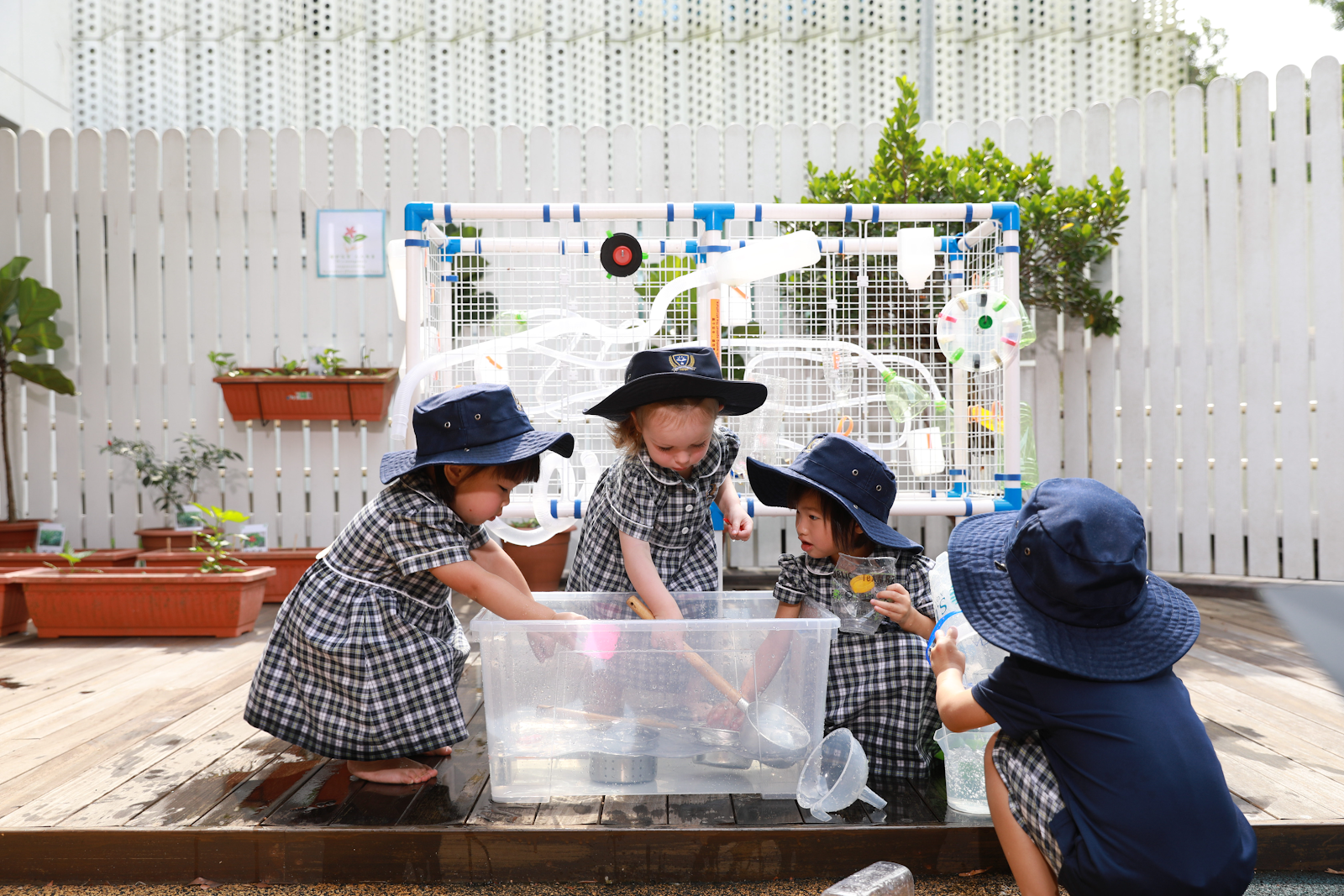Nurturing Character,
Inspiring Minds
Inspiring Minds
Primus Schoolhouse: Reggio-Inspired Bilingual Preschool >
For Parents >
Articles >
Play-based Learning in Preschools: Is It Effective?
Play-based Learning in Preschools: Is It Effective?
.png)
November 8, 2022
Piaget’s theory of play was an important breakthrough in child psychology. He believed that children learnt the best by exploring, observing, making sense of things, solving problems, and then getting feedback on their exploration. In order for their minds to develop, he also suggested that young children should engage in activities that allow them to learn through trial and error.
Today, play has become an important part of every child’s learning process. It gives our young ones the opportunity to explore the world within a safe environment, and helps them develop their self-confidence, flexibility, adaptability, and empathy. When incorporated into a school environment, play encourages children to develop social skills, academic skills, cognitive skills, and strategies to navigate the world of learning.
.png)
What is Play-based Learning?
Piaget’s approach to learning is built on the idea that free play is essential for children to develop their own game-like perspective. If we want our children to develop their abilities, giving them time to explore new things on their own is a great way of doing so.
Piaget’s play-based learning focuses on a child’s natural curiosity, experimentation, and development through play. He believed that every child has the ability to solve problems because language skills and problem-solving skills are developed from a young age. Educators today agree with Piaget that children learn best by exploring their environment and engaging with others.
Is Play-based Learning Effective?
We all know how important it is for children to develop a love and appreciation for learning, but what kind of learning is the most effective for them?
According to the National Institute of Child Health & Human Development (NICHD), play-based learning — which means spending time each day actively exploring and playing with real objects — is our best bet at keeping kids active and engaged in the classroom, thereby improving their overall academic learning and performance.
Play-based learning is effective for children because it enables children to develop social and emotional skills, listening abilities, and creative problem-solving skills. This can help them with everyday challenges they are faced, and even challenges they may face later on in life.
A play-based program introduces numerous benefits that can be enjoyed by both children and adults:
- Children learn new concepts faster when they take charge of their own learning. Play-based learning helps them retain information in their memory compared to traditional classroom teaching methods. It also allows children to work at their own pace, understand literacy concepts, and solve any problems they face along the way.
- In play-based learning, children are encouraged to use their imagination. This fosters their creativity and problem-solving skills, and helps them develop life skills and social competencies. Altogether, this can instil a healthy self-esteem and confidence in young children.
- Through games, pretend play, and creative activities, kids will gain both knowledge and technical skills to further their chosen interests and passions.

Play-based Learning vs Montessori Method
Play-based learning usually comes in the form of free play where there are no defined rules or directions to what a child should be doing. On the other hand, Montessori methods can be very structured or very lax depending on the environment. This specific difference allows for different development levels to take place and match a child’s needs individually.
Play-based uses imaginary thinking while Montessori uses concrete thinking
A play-based approach involves imaginary thinking which can be relevant to arts, math, science, and social studies. Montessori approach on the other hand uses concrete learning in most areas of instruction wherein a teacher encourages children’s learning through concrete thinking instead of fantasy or imagination.
Play-based learning is creative in nature as it stimulates brain waves more. Concrete learning means treating the material being learned as real, as in the case of Montessori or any other method that focuses on concrete things (like blocks or sticks). In contrast, play-based learning is based on imagination and improvisation.
Play-based learning is more open-ended and cooperative
Play-based learning is structured around open-ended, discovery-oriented activities, making exploration and discovery the central focus of the learning process. As a result, children have the opportunity to explore as widely as their inquiring minds allow.
Children working on a project that involves grouping objects that are similar in size or shape often engage in cooperative play with one another in an attempt to complete tasks successfully. No pre-planned curriculum is needed; children create their own individual work based on their own ideas and interests while they learn together!
Montessori is more teacher-directed
Montessori education grew out of the usual observation: most children learn best through play.
In many schools today, the approach being utilised is teacher-supported learning where the instruction is based on the “teacher’s plan”-based model. This is a teacher-directed and controlled activity with little room for children to interact with their environment.

Activities that Encourage Play-based Learning
Engaging in activities that encourage play-based learning is crucial to a child’s early development so finding a curriculum that highlights such activities is important.
- Arts and Crafts – art activities when done in guided play spaces encourage play-based learning, helping kids to develop fine motor skills, hand-eye coordination, and colour recognition. Whether it’s sewing, clay, painting, or knitting, there is a craft for every child’s imagination and creativity.
- Reading and Writing – when reading and writing, children develop important skills that serve them later in life. These types of activities support parents and early childhood educators who want to encourage their children to engage with books and other print materials based on their interests, skills, and language development.
- Singing, dancing, and playing of instruments – dramatic play such as singing and dancing, along with playing instruments, develop the skill and confidence of both the child who plays and the child who watches. This kind of play that does not rely on direction from adults helps children make choices and enables them to express themselves through movement.

Learn and Play at Primus
A good play-based learning school such as Primus Schoolhouse empowers young students to participate in a safe, fun, and stimulating environment throughout their early years in school.
Our comprehensive play-based learning programme caters to children from pre-nursery to kindergarten, and offers students a variety of challenges in an enjoyable setting.
The school also provides students with fun enrichment classes, including art, dance, and music. Together, we aim to combine play with learning to develop the cognitive skills of our young children, and teach them how to become better thinkers and problem-solvers.
Book a school tour today to find out how your child can also benefit from play-based learning at Primus Schoolhouse.

